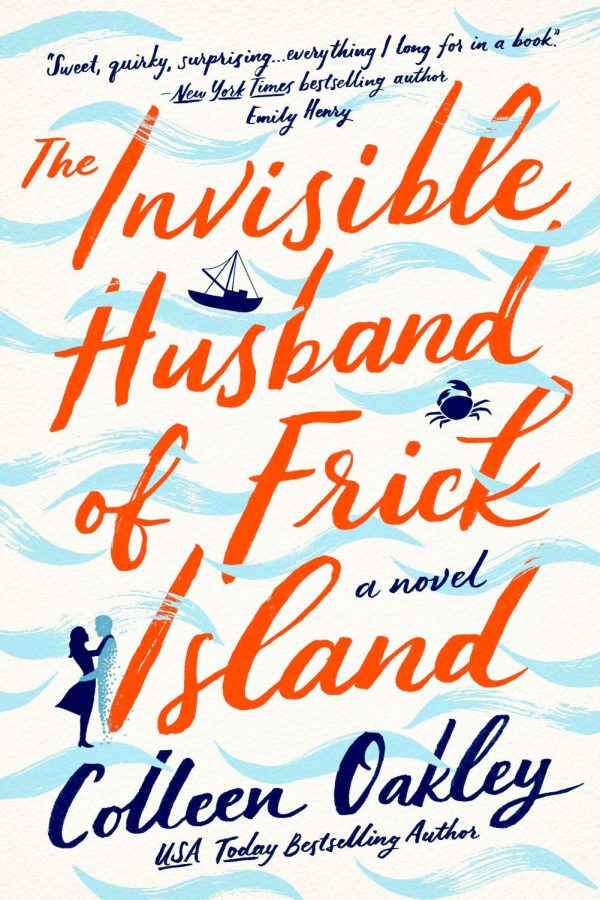A tiny island in the throes of climate change. A town of people talking to a dead man. A journalist looking to uncover the truth. These are all ingredients for the head-scratcher that is Colleen Oakley’s “The Invisible Husband of Frick Island.”
Anders Caldwell, a journalist knee-deep in fluff pieces, thinks he has finally caught his big break when he finds himself on Frick Island, a relatively remote island in the Chesapeake Bay. What starts out as a look into the effects of climate change on the island turns into something different when Anders realizes the island is living under a shared delusion — everyone is pretending that Piper Parrish’s husband, Tom, is still alive, despite the fact that he drowned on a fishing expedition months before.
Anders is floored by the way the townspeople play into Piper’s grief-stricken fantasy. When she walks her invisible husband to the docks in the morning, they all wave to him. When she sits with her invisible husband in a local restaurant, they give him a seat and serve him dinner.
Anders starts a podcast about the situation, and the overnight success brings him back to the island weekend after weekend. As Anders begins to develop feelings for Piper, he has to grapple with the morality of publishing her story, and how it will affect her when an internet signal finally reaches the island.
I really enjoyed this book, but I didn’t enjoy the end. The concept was compelling, and Oakley kept me guessing for most of the book, although that might have been because I couldn’t imagine her actually ending it the way she did. It felt like she assumed that she had to end the story in a way that tied up everything nicely for the characters, and the resolution just fell flat. The answers were unsatisfying after 300 pages of buildup.
I actually would have been more interested if Oakley ended the book without tying a bow on everything — that would have made for a more authentic conversation about mental health, grief and support for those struggling in your life. Instead, the resolution makes readers question the ethics of the main characters whom we’re supposed to be invested in. I was unsure if we’re even supposed to want the pair to end up on good terms after they essentially spend the whole book lying.
Additionally, I’m usually a big fan of the small town trope, but this rendition didn’t do it for me. For most of the book, readers deal with the townspeople from Anders’ perspective. To put it lightly, they’re not too fond of outsiders poking around and asking questions. They’re especially protective of Piper, making them hostile towards Anders throughout the book. I thought I would be endeared to them by the end when the truth came out, but with few exceptions, they were still too standoffish to make a positive impression.
The book wasn’t bad; it was entertaining and original, and one of the more spot-on portrayals of online virality. It just wasn’t what it could have been, and that’s somehow more disappointing.
























































































































